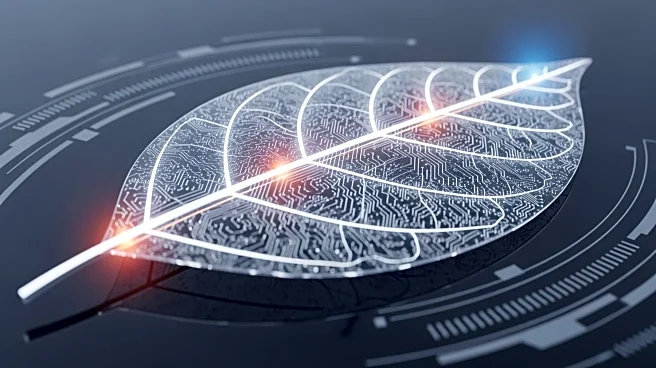What's Happening?
Researchers have developed an Organic Electrolyte Gated Field Effect Transistor (OEGFET) to detect alpha-synuclein biomarkers in a Parkinsonism mouse model. The study utilized an A53T transgenic mouse model to track
disease progression by analyzing changes in blood serum protein levels and comparing them to brain tissue samples. The Ab-OEGFET device demonstrated sensitivity to early-stage detection of changes in toxic forms of alpha-synuclein, a key biomarker in neurodegenerative diseases. The device's response was analyzed using different antibody candidates across serum dilution series, showing promise for tracking pre-clinical neuropathology associated with Parkinson's disease.
Why It's Important?
The development of the Ab-OEGFET device represents a significant advancement in biosensing technology for neurodegenerative diseases. Early detection of alpha-synuclein biomarkers can lead to better understanding and management of Parkinson's disease, potentially improving patient outcomes. This technology could pave the way for more effective diagnostic tools, enabling healthcare providers to monitor disease progression and tailor treatments accordingly. The ability to detect biomarkers in blood serum offers a non-invasive method for tracking disease, which could be crucial for early intervention strategies.
What's Next?
Further validation and testing of the Ab-OEGFET device are expected to continue, with potential applications in clinical settings for early diagnosis of Parkinson's disease. Researchers may explore the integration of this technology into point-of-care devices, enhancing accessibility for patients and healthcare providers. The study's findings could also stimulate additional research into biosensing platforms for other neurodegenerative diseases, broadening the scope of early detection and intervention strategies.
Beyond the Headlines
The ethical implications of early detection technologies like the Ab-OEGFET device include considerations around patient privacy and data security. As these devices become more prevalent, ensuring the confidentiality of patient information will be paramount. Additionally, the cultural impact of such advancements may shift public perception of neurodegenerative diseases, emphasizing the importance of early diagnosis and proactive healthcare management.










